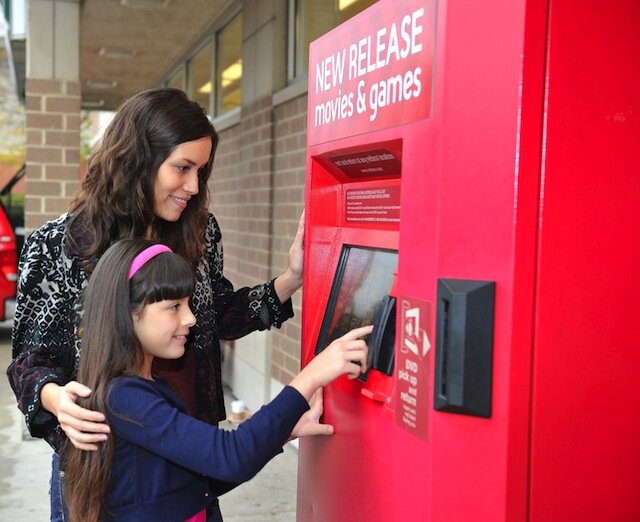 THEY SAID IT COULDN’T BE DONE! Actually, they said it could be done, back in January 2011.
THEY SAID IT COULDN’T BE DONE! Actually, they said it could be done, back in January 2011.
That’s when CEO Paul Davis of Bellevue’s Coinstar, which owns Redbox, mentioned that they a number of ideas for automated kiosks, among them a coffee-serving contraption. Davis was previously president of Starbucks’ North American Operations, so this was not a shot in the dark. In fact, the new Rubi kiosks are branded as Seattle’s Best Coffee dispensers, a Starbucks-owned line for the value-conscious caffeinator.
Bloomberg says an SBC kiosk “brews a fresh 12-or 16-ounce cup of java through a press in 1 minute,” and that they’ll offer seven different drinks, including hot chocolate, for $1 to $2. This is not that low-tech machine burbling in the corner of a dilapidated service station–the Seattle’s Best Coffee beans are ground to order. GeekWire reported back in June that the company had plans to put 500 of the Rubi kiosks “at grocery stores, retailers and drug stores across the West Coast and northeastern U.S this year.” The eventual market might be 15,000.
Value-conscious grocery store chain Safeway is all over the Rubi, though at this point, they will not be installing the kiosk in stores that already have a Starbucks café. Bloomberg compares the pricing thusly: a cup of coffee from a Rubi might run $1 to $1.50, with specialty drinks like a latté or mocha costing $1.50 to $2–“In Los Angeles, Starbucks charges $1.65 for 12-ounce coffee and $1.95 for 16 ounces. Lattes fetch $2.75 and $3.55 in those sizes.”
Of course, that’s not counting your barista’s tip. Starbucks has just announced that its mobile add will include tipping as of next summer. If you pay with Square, you’ll be able to do your barista a digital solid even sooner.

